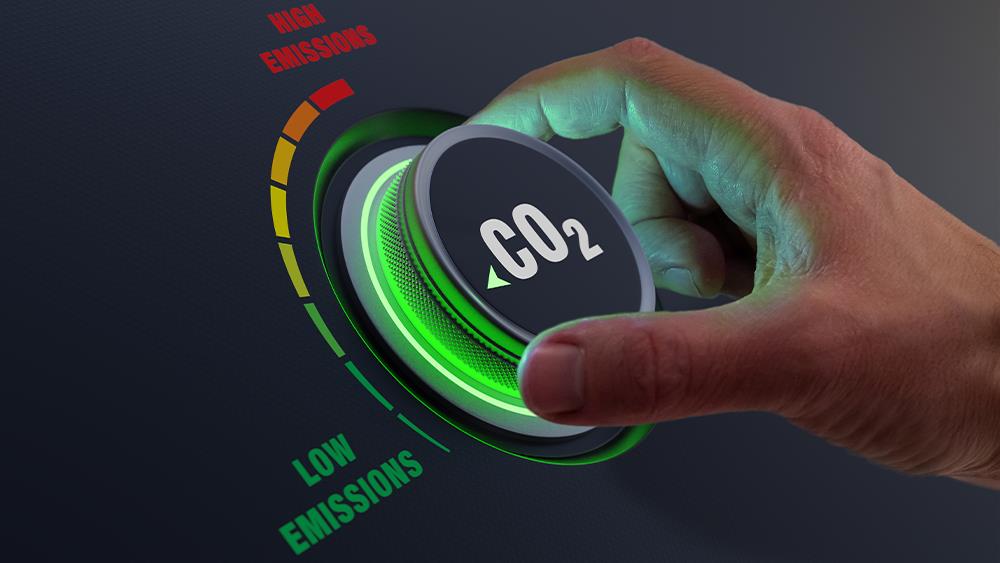

The research of 2,000 UK consumers, conducted on behalf of trade association the Energy and Utilities Alliance (EUA), also found that almost three-quarters (73.8%) of people would support the development of low carbon gas boilers that could be easily swapped with existing boilers to help deliver the UK’s climate change targets. Almost two-thirds (64.3%) of respondents said they would choose a low carbon boiler if replacing their heating system.
Amid increasing cost of living concerns, 82% of respondents believe the government should prioritise affordability in the development of renewable technologies for heating homes in the UK.
However only 6.2% of those asked would be willing to pay £8,500 for a new heating system, the average additional expense of retrofitting a heat pump. Almost two-thirds would be unwilling or unable to pay this much for a new heating system.
Mike Foster, CEO of the EUA, explained: “It is clear that Brits back action on climate change. However, with the cost-of-living crisis causing concern for pretty much everyone, the Government have got to commit to a more affordable route. The vast majority of UK residents cannot afford the price tag for a heat pump, nor do they want to switch away from some kind of low carbon gas.
“The gas grid is gearing up for hydrogen, and boiler manufacturers have already made promises around price for consumers. Now it is up to the Government to pull their fingers out, and prioritise UK people and their finances by progressing hydrogen as part of the UK’s energy mix.”
When asked, 71% of respondents believed the government should make a clear statement that, in future, all gas supplied to UK homes through the gas grid is low or zero carbon.
The government has now released its much awaited Energy Strategy, which it claims includes "bold plans" guaranteeing "cleaner and more affordable energy" made in Great Britain that will "boost long term energy independence, security, and prosperity".
The stated aim of the strategy is to "accelerate the deployment of wind, new nuclear, solar and hydrogen, whilst supporting the production of domestic oil and gas in the nearer term – which could see 95% of electricity by 2030 being low carbon".
However, reacting to the strategy, Laura Bishop, Chair of the Ground Source Heat Pump Association, said: "the government's energy security strategy published today represents a missed opportunity.”
“Instead of focusing on immediate measures to reduce dependence on expensive imported gas, including accelerating the rollout of heat pumps, the strategy focuses on the government's favoured electricity generating technologies, including those with long lead in times. This will do nothing to address the immediate cost of living and energy crises facing UK consumers.”
“We welcome the announcement of a new grant completion for UK heat pump manufacturing and a government information website for heat pumps, but again, this will do little in the short-term to boost heat pump demand, or put the UK on course to delivering the Prime Minister's target of 600,000 heat pumps per year by 2028.
“The GSHPA has been calling for an acceleration of the welcome measures contained in last year's Heat and Buildings Strategy, but today's announcements provide no additional funding for consumers wanting to switch to heat pumps, nor give any clear indication of when the legacy environmental costs on electricity bills will be removed.
“We needed to see far greater urgency in today's announcements, with a clear focus on reducing energy demand in the short term. We didn't get it. "
The Heat Pump Association (HPA), for its part, welcomed the news that the strategy includes a £30 million Heat Pump Investment Accelerator Competition to make British heat pumps.
Phil Hurley, Chair of the HPA, said: “In the context of the cost-of-living crisis and the tragedy in Ukraine, it has never been more important for heat pumps to be deployed at scale in UK homes, and we remain committed to collaborating with government and industry to make this happen.
“The electrification of heat enables energy security by giving choice to how electrical power is generated or migrated to renewable energy over time, and it’s welcome to see this reflected in the Energy Security Strategy published today. Not only can heat pumps reduce carbon now but their benefits will increase over time as the grid continues to decarbonise.”
Focusing on hydrogen, Oliver Lancaster, Chief Executive Officer of the Institution of Gas Engineers & Managers (IGEM), said: "With the gas system currently underpinning energy demand and delivering a significant flexibility service today, I'm really pleased that the Government is doubling the ambition for low-carbon hydrogen and making clear its intention for hydrogen's use in homes, industry and transport.
"IGEM supports the adoption of a secure and diverse?multi-vector system for net-zero, with major roles for hydrogen, wind, nuclear, energy efficiency and demand response that are optimised for lowest total system cost and balanced across local, regional and national levels.?
"Like natural gas today, hydrogen offers a multi-sector role, reaching customers everywhere through our climate-resilient gas grid. Our thousands of individual members, and hundreds of supply chain company members, stand ready to engineer this sustainable gas future to keep cumulative emissions as low as possible.”
If you'd like to keep up-to-date with the latest developments in the heating and plumbing industry, why not subscribe to our weekly newsletters? Just click the button below and you can ensure all the latest industry news and new product information lands in your inbox every week.